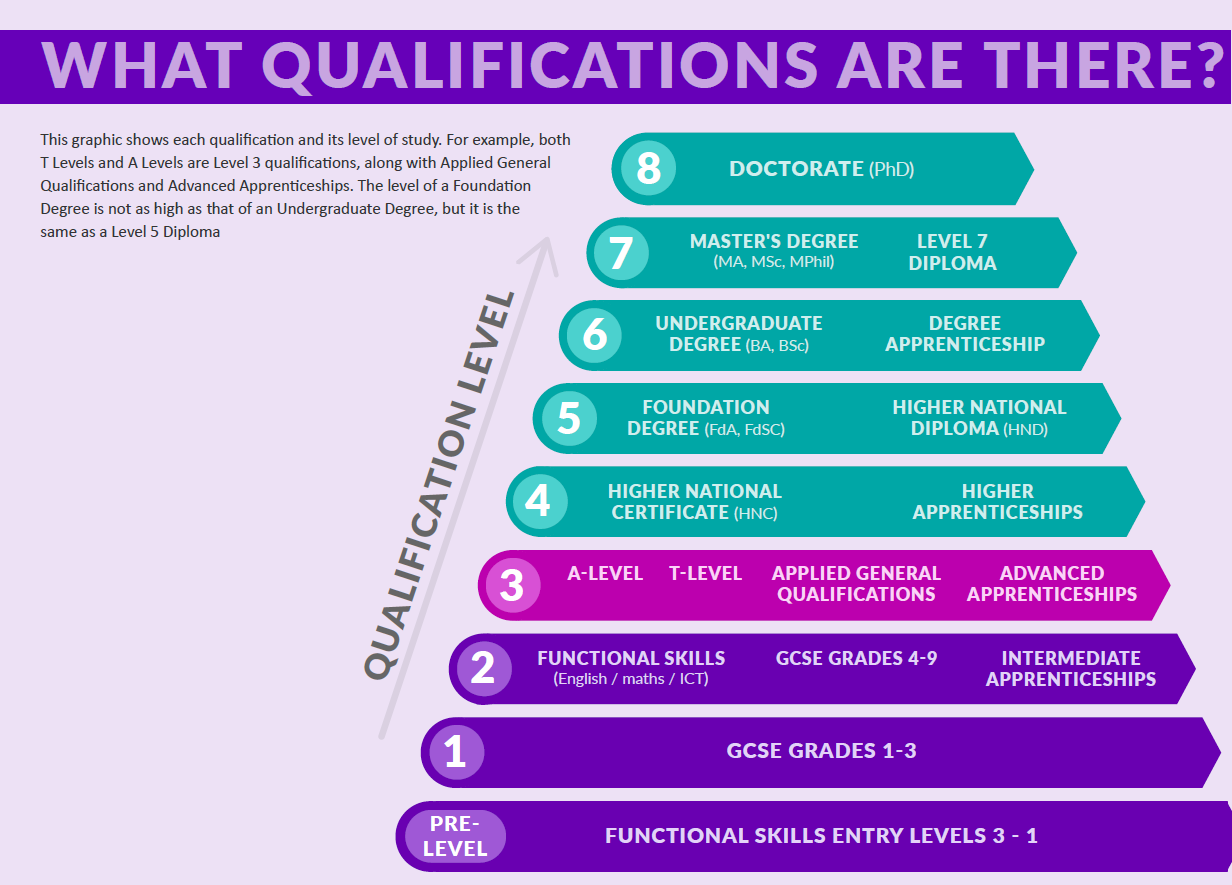Background to qualifications reform in England
The Department for Education (DfE) has been implementing reforms to post-16 qualifications at level 3 and below for the past few years. The core aim of these reforms is to simplify the education landscape, whilst ensuring that there are high quality options on offer for all young people. To ensure that employer needs are met, all technical qualifications are based on Occupational Standards approved by Skills England
A key element of the reforms is the introduction of T Levels in 2020, which are available in 20 different subject areas, with more to come on stream from 2025.
In July 2024, the government announced a focused review of post-16 qualifications reform at level 3 and below. This included a pause on the removal of funding for qualifications that overlap with T Levels, which was originally due to take place in 2024 and 2025.
On 12 December 2024, the DfE announced the outcome of this review. Rather than a blanket approach of removing all qualifications that overlap with T Levels, they took a more pragmatic approach to qualifications reform and looked at the qualifications on a route by route basis. As a result, it was decided to retain funding for 157 qualifications (alongside T Levels and A Levels) that were due to be defunded by 31 July 2025.
Over 200 qualifications with low or no enrolments were identified to have their funding removed, giving students and employers a simpler range of qualifications to choose from. The decisions made in the review make the government's position clear up to 2027.
In October 2025, the DfE published a Post-16 Education and Skills White Paper, further outlining the strategic direction for post-16 education reform.
The ongoing Curriculum and Assessment Review will take a view on qualifications in the longer term as part of its wider consideration of how we prepare young people for life and work.
Our dedicated section on the 'technical education landscape and qualifications reform' provides more detail and updates on the latest information.










